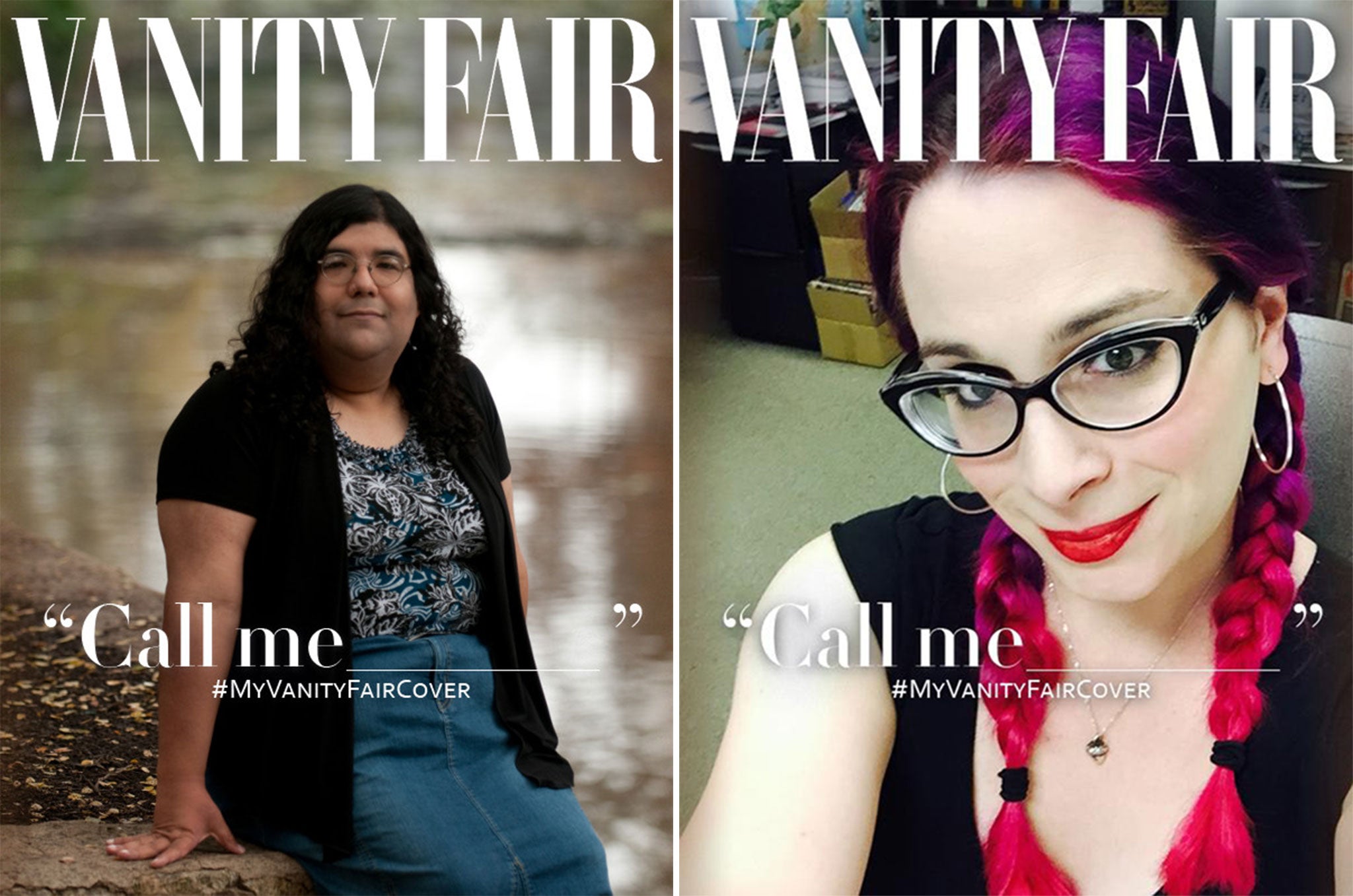Trans people are sharing their own #MyVanityFair covers to 'show the world the myriad faces of the trans community'
'Trans women come in a wide variety and well all deserve exposure and love'

Your support helps us to tell the story
From reproductive rights to climate change to Big Tech, The Independent is on the ground when the story is developing. Whether it's investigating the financials of Elon Musk's pro-Trump PAC or producing our latest documentary, 'The A Word', which shines a light on the American women fighting for reproductive rights, we know how important it is to parse out the facts from the messaging.
At such a critical moment in US history, we need reporters on the ground. Your donation allows us to keep sending journalists to speak to both sides of the story.
The Independent is trusted by Americans across the entire political spectrum. And unlike many other quality news outlets, we choose not to lock Americans out of our reporting and analysis with paywalls. We believe quality journalism should be available to everyone, paid for by those who can afford it.
Your support makes all the difference.Trans people are creating and sharing their own Vanity Fair magazine covers under the hashtag #MyVanityFair, in order to “show the world the myriad faces of the trans community”.
Following the widespread celebration of Caitlyn Jenner’s “Call me Caitlyn” Vanity Fair cover, a discussion has been started about the expectations placed on trans people to conform to cisnormative beauty standards in order to be taken seriously by others.
Crystal Frasier and Jenn Dolari have created a template of the Vanity Fair cover for trans people to upload images of themselves and fill in the coverline “Call me___” with their own name, and people have responded with messages of thanks and support, sharing their own front covers.
“The trans community has engaged in a lot of dialogue in the past few days, ever since Vanity Fair announced their Caitlyn Jenner cover story, most of which revolves around the idea that the world only seems to embrace us if we’re wealthy enough or lucky enough to adhere to white, cisnormative beauty standards,” Frasier wrote in a blog post, which included the templates for people to download.
“I’ve felt frustrated and useless and overwhelmed by opinions on transgender women and how we’re ‘supposed’ to look if we want to be taken seriously,” she said, adding that not all trans people conform to the particular standards, and “not all of us want to”.
She added: “Not all of us can. Some of us do, but only out of fear. Some of us do but we aren’t sure why. And whether we fit those standards or not, we’re beautiful, and we all deserve to feel beautiful, and be acknowledged by the world,” she wrote, asking people to share their covers and “show the world the myriad faces of the trans community”.
Frasier referenced the opinions expressed by Orange is the New Black actress Laverne Cox this week, who wrote that “most trans folks don’t have the privileges Caitlyn and I now have, and it is those trans folks we must continue to lift up, get them access to healthcare, jobs, housing, safe streets, safe schools and homes for our young people”.
Cox, who appeared on the cover of Time magazine last year, shared the images of hers and Jenner's magazine covers on Instagram with the message: "I had so many thoughts about Caitlyn Jenner's Vanity Fair cover that I needed a longer format to discuss them," signposting people to her blog.
She wrote on her blog: “We must life up the stories of those most at risk, statistically trans people of colour who are poor and working class,” she said, calling for diverse media representation of trans people to “multiply trans narratives [and] depict our beautiful diversities”.
Join our commenting forum
Join thought-provoking conversations, follow other Independent readers and see their replies
Comments